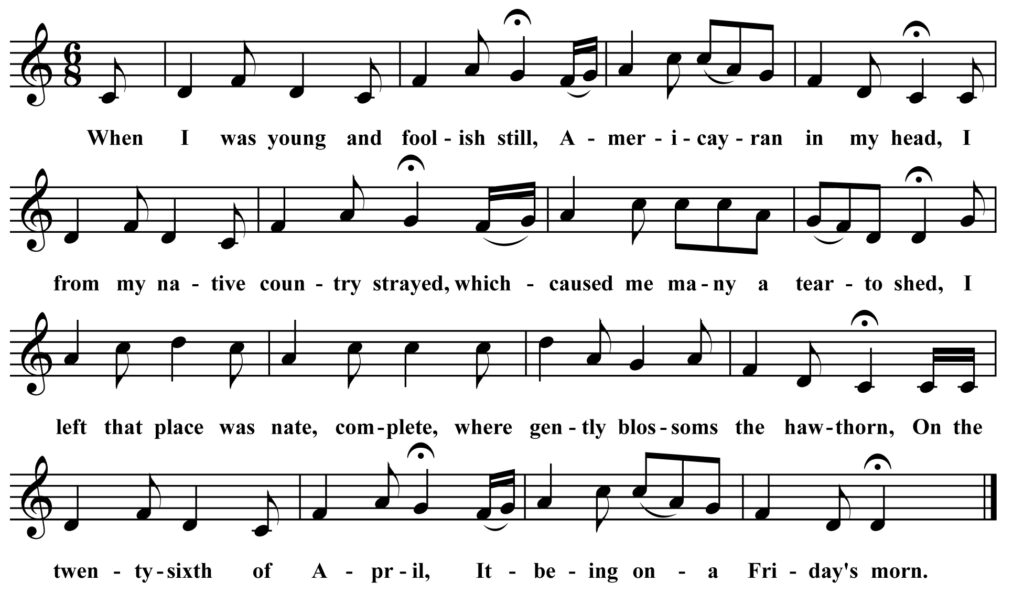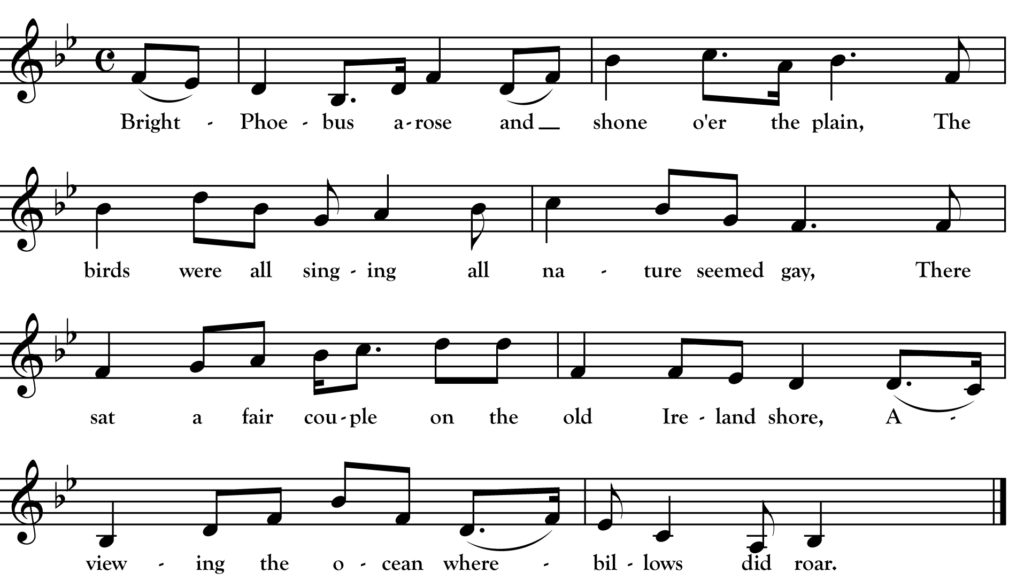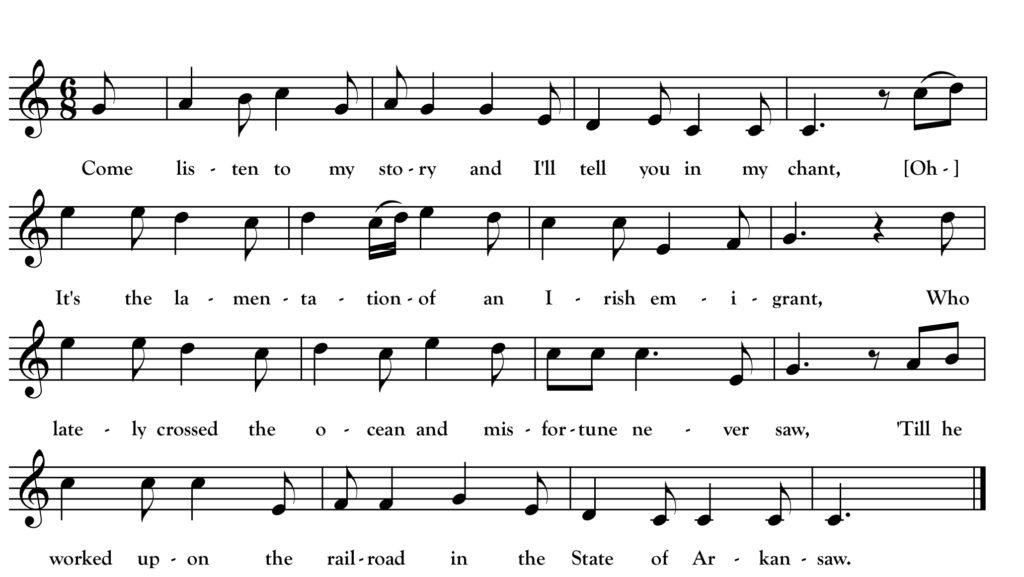Carnanbane

When I was young and foolish still, Amerikay ran in my head,
I from my native country strayed, which caused me many a tear to shed.
I left that place was nate, complete, where gently blossoms the hawthorne,
On the twenty-sixth of Ap-er-ile, it being on a Friday’s morn.
My friends and comrades convoyed me to near a place called Claudy town,
And when our parting did draw near, the tears from them came trinkling down.
With courage stout I stepped out and down the Faughn took my way,
And in the space of two short hours my course I stopped on Derry Quay.
It’s down the Foyle we then did steer and dropped our sails on Moville strand.
And as the sun was going down I lost the sight of Paddy’s land.
Our seamen stout they stepped out while the headwinds did softly blow,
Still hoping for a pleasanter gale; next morning we to sea would go.
But when I’m landed in St. John’s, I’ll fill my glass and grieve no more,
Still hoping for the pleasant hours when I’ll return to the Irish shore,
And when I’m in the fields alone or wandering o’er Columbia’s land,
I’ll often think of going home to the girl I left in Carnanbane.
We stray from the formula a bit this month for a song that has was not collected in North America at all but that does tell the type of Ireland to Canada immigration story that is at the root of how Irish songs came to be sung in the north woods. Carnanbane is a townland in County Derry and the above melody (with some adaptation by me) and text were collected by Sam Henry from William Laverty who got it from James Young of Dungiven.
The song’s protagonist leaves Derry quay and sails for “St. John’s.” St. John’s is the capital of Newfoundland and St. John is an important port city in New Brunswick. Folk song scholar John Moulden has argued convincingly that Irish songs of emigration frequently confuse St. John with St. John’s and that a story of emigration from Derry was almost certainly referencing St. John, New Brunswick. Moulden quotes Sholto Cooke’s book The Maiden City and the Wester Ocean saying St. John, New Brunswick was “…the cradle of Derry trade with North America and the destination of great numbers of emigrants for Canada or in transit to the United States.” Ships did not typically carry passengers from Derry to Newfoundland.
Emigration to Canada was especially common in the pre-Famine years with the two main destinations being St. John and Quebec City. Of the over 750,000 Irish that sailed for the New World between 1828 and 1844, Canadian ports welcomed about 55% of all arrivals (409,000 total over those 17 years). Many Irish immigrants continued on to urban centers in the United States. Those that stayed in Canada tended to fall into more rural patterns of life. Men took outdoor seasonal laboring jobs digging canals, building railroads or working in the lumber woods. Wherever they went, they carried songs.



